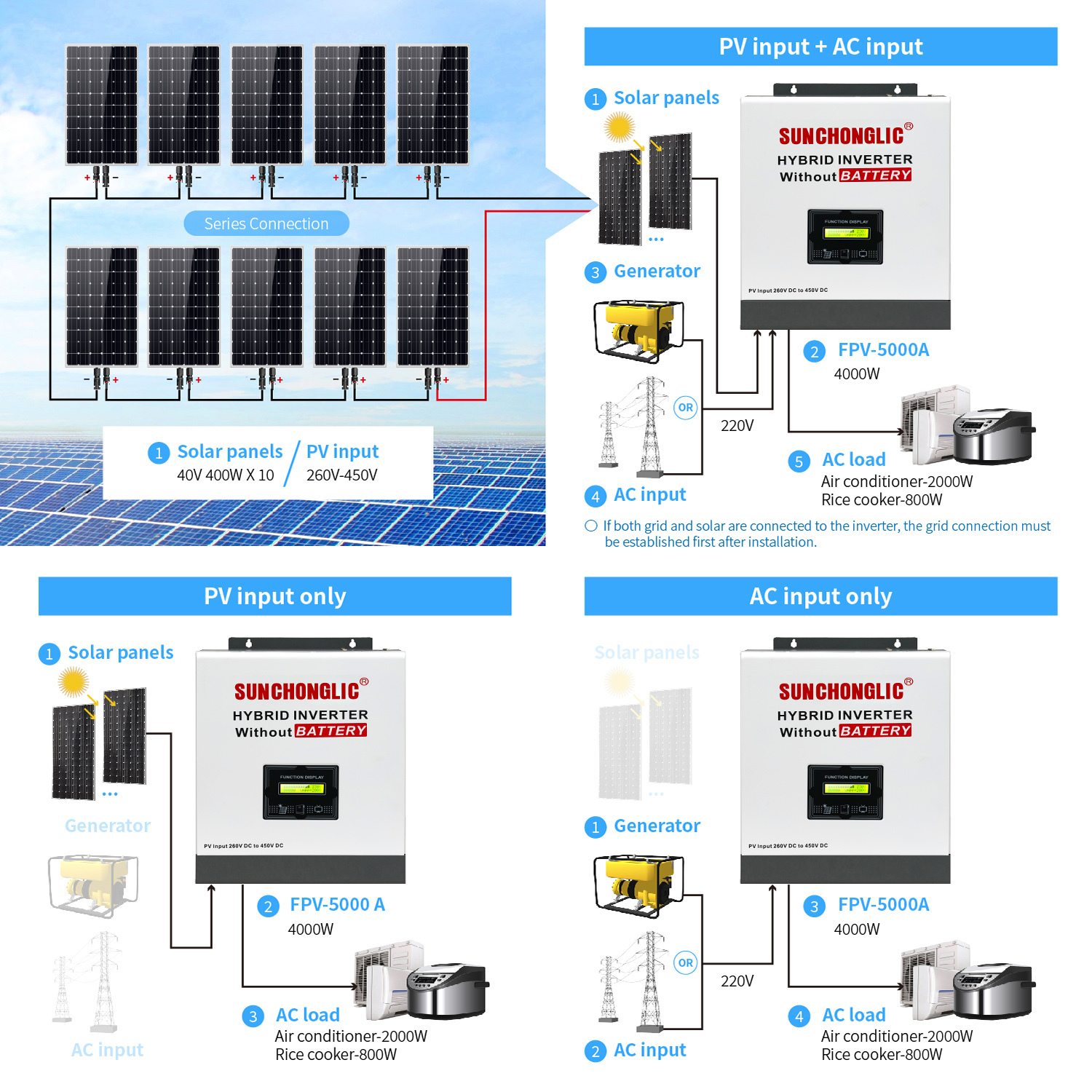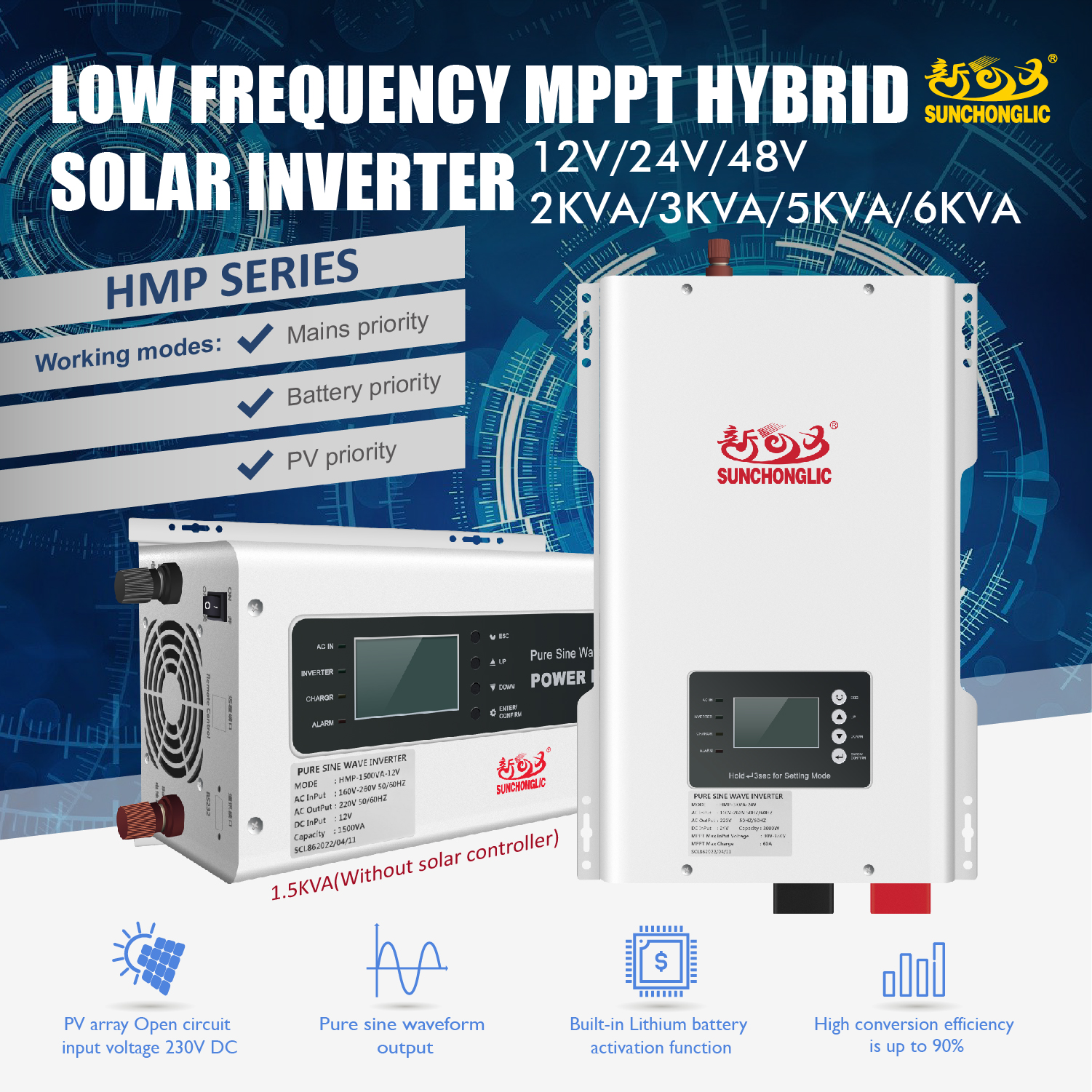What is a Hybrid Inverter?
A hybrid inverter is a versatile power conversion device that combines the functionalities of a grid-connected inverter and a battery inverter. It is designed to manage both solar energy and battery storage systems, making it ideal for off-grid and on-grid hybrid systems . This type of inverter is particularly useful in scenarios where solar energy is supplemented by battery storage or fossil fuel-based generators, ensuring a reliable power supply even during periods of low solar generation or grid outages .

Key Features of a Hybrid Inverter
1. Dual Functionality: A hybrid inverter can operate in both grid-connected and off-grid modes. In grid-connected mode, it supplies power to the grid, while in off-grid mode, it uses battery storage to provide power when the grid is unavailable .
2. Energy Management: The inverter integrates a solar photovoltaic charge controller, a power inverter, and a battery inverter into a single unit. This allows it to manage inputs from solar panels and battery packs simultaneously, optimizing the use of solar energy and stored electricity .
3. High Efficiency: Modern hybrid inverters are designed to deliver high power efficiency, often exceeding 97%, which ensures minimal energy loss during conversion .
4. Multiple Inputs and Outputs: Unlike traditional string inverters, hybrid inverters have more inputs and outputs, allowing them to handle multiple solar panels and battery systems efficiently .
5. Intelligent Control: Many hybrid inverters come with intelligent control systems that support time-of-use (ToU) and dynamic pricing strategies, enabling users to optimize energy costs based on electricity prices .
6. Remote Monitoring and Management: Advanced hybrid inverters offer remote monitoring and control capabilities, allowing users to monitor system performance in real-time and make adjustments as needed .
7. Compatibility with Other Systems: Hybrid inverters can be integrated with diesel generators, microgrids, and other renewable energy sources, making them a flexible solution for various applications .
Applications of Hybrid Inverters
Hybrid inverters are widely used in both residential and commercial applications, including:
Solar Power Systems: For homes and small businesses that rely on solar energy for their power needs.
Industrial and Commercial Facilities: For large-scale energy management systems where both solar and battery storage are required.
Remote and Off-Grid Locations: For areas where grid connectivity is unreliable or unavailable, such as rural or island communities.
Microgrids: For decentralized power systems that combine multiple energy sources, including solar, wind, and fossil fuels .

Advantages of Hybrid Inverters
1. Reliability: By combining solar and battery storage, hybrid inverters provide a more reliable power supply compared to traditional systems that rely solely on the grid or a single energy source .
2. Cost Savings: The ability to store excess solar energy during the day and use it at night or during peak hours can lead to significant cost savings on electricity bills .
3. Environmental Benefits: Hybrid inverters reduce reliance on fossil fuels, contributing to a more sustainable and environmentally friendly energy solution .
4. Scalability: Hybrid inverters can be easily scaled to meet the needs of different applications, from small residential systems to large commercial and industrial setups .
Conclusion
A hybrid inverter is a powerful and flexible solution for modern energy systems. It combines the best of solar and battery technologies to provide a reliable, efficient, and cost-effective power supply. As the demand for renewable energy continues to grow, hybrid inverters are becoming an essential component in the transition to a more sustainable energy future .
